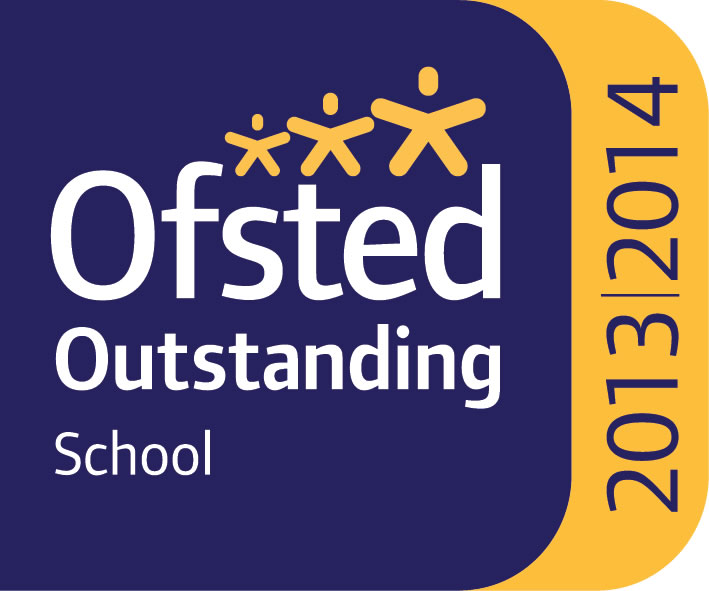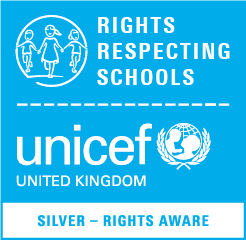SEND Information
Who are the best people to talk to in this school about my child’s difficulties with learning/Special Educational Needs or disability (SEND)?
At Walmley Junior School our SENDCo is Mrs Karen Conway. If you would like to talk to her then you can phone school and arrange to meet or call. The phone number to contact her is 0121 351 1346. Mrs Conway is in school each day. Please send any messages via email enquiry@walmley-jun.bham.sch.uk
Click here to access Birmingham’s Local Offer – https://www.localofferbirmingham.co.uk/
Click here for our school’s SEND Information Report – November 2024
At Walmley Junior School, we continually monitor the progress and attainment of our pupils, however, some children may fall below our expected levels in one or more areas. These children may have special educational needs and will therefore need extra support. Children that have a special educational need at Walmley Junior School are identified and supported according to guidelines specified in the Special Educational Needs and Disability Code of Practice (2014).
Our SEND policy details how we aim to ensure that the necessary provision is made for any pupil that has SEND.
Parents and pupils will be involved and kept informed at every stage.
A child has a special educational need or disability (SEND) if they had a learning difficulty or disability which calls for special educational provision to be made for them. This means that the provision they need is additional to or different from that made generally for other children of the same age.
Special educational needs and disabilities are covered by four broad areas of need:
- communication and interaction
- cognition and learning
- social, emotional and mental health difficulties
- sensory and/or physical needs
A significant number of children may need special educational provision at some time during their school lives.
Under the Special Educational Needs and Disability Code of Practice (2014) our school is expected to provide SEND information with reference to:
- appropriate and effective teaching and learning
- open and honest communication
- a partnership approach
What are the different types of support available for children with Special Educational Needs and Disabilities at Walmley Junior School?
- Teachers adapt teaching to help all children learn to the best of their ability.
- Extra support can be given in a small group by an adult to help the child learn the things they are finding difficult.
- Extra support can be given to the child by an adult for short times during the day to support them to learn specific skills.
- Individual targets set to show what the child needs help with and measure progress they are making.
- Advice from a specialist support teacher or other professional will be called upon, if required.
- Support can be tailored to a child with particular needs upon consultation with the class teacher and Inclusion Leader.
How can I be involved with my child’s learning and progress?
Our school has an open door policy, ensuring we are always approachable so parents feel involved in the education of their child. This is done in a variety of ways including:
- Regular meetings with class teacher, (support staff where relevant) and the Inclusion Leader.
- Individual targets are set so parents can see what their child is working on next.
- Curriculum overview published on our school website.
- Information on the school website.
- Regular Parents’ evenings.
- Parent workshops.
- Signposting to specialist parent groups.
- Parents’ views on Individual Learning Profiles and Annual Review documents.
How will the school let me know if they have any concerns about my child’s learning in school?
- Liaison with class teacher in the first instance.
- Scheduled Parents’ Evenings.
- Termly review meetings and Annual Reviews (where appropriate).
- Graduated approach to learning difficulties, using the ‘Assess, Plan, Do, Review’ model.
- Open Door Policy of School.
- Inclusion Leader advice and coordination.
All children’s progress, including those children or young people with SEND is tracked using the school’s assessment tracking system. Pupils are assessed regularly using teacher marking, observations and questioning as well as more formal assessments in testing.
In Birmingham, we have access to the Birmingham Language and Literacy and Maths toolkits which support assessment when a child or young person is making small steps of progress. In addition for children with SEND we set individual targets that are reviewed with parents at three times a year. This helps the school to monitor how well interventions are working.
What examples of provision are available at Walmley Junior School for pupils with SEND?
In our school we make provision for pupils with all types of Special Educational Needs and Disabilities.
We know that some pupils will have difficulties in more than one area and we will always do our best to meet their needs. All children in school have support within lessons through adapted teaching and quality first teaching strategies. This means that activities are delivered and planned according to the level the child is working at. This can include a variety of adaptations including a change in resources, changes to teaching styles as well as levels of adult support.
We have two members of staff trained as a Lead Practitioner for Autism and communication difficulties. Their role is to support staff with practical classroom strategies and to support children with social skills, organisation and communication.
Walmley Junior School is a fully accessible school. As a school, we always make adjustments to ensure that all children are fully included.
Who are the other people providing services to children with SEN in this school?
We will discuss with you and ask for your consent before any new agencies or services begin working with your child.
| Agency or service | Who they work with | How school can contact them |
| Pupil and School Support (PSS) | Children who are working below the levels expected for their age and have cognition and learning difficulties. Staff come in to school to offer support, advice and training. | Specialist teacher: Gareth Fowler. |
| Physical Disability Support Service (PDSS) | Children with physical difficulties which impact on their access in the school setting. | Specialist teachers: Lindsay Maurer |
| Communication and Autism Team (CAT) | Children who already have a diagnosis of Autism or communication difficulties. | Specialist teacher: Sarah Patterson |
| Educational Psychology Service (EPS) | Children with complex needs. An Educational Psychologist will always be involved with a child who is referred for an Education, Health and Care Plan (EHCP). | Educational Psychologist: Preeya Chibbra |
| Speech and Language Therapy | Offers additional clinical support and training which schools to meet the needs of children and young people with Speech, Language and Communication Needs (SLCN). | Speech and Language Therapist: Amy Marshall-Unitt |
| School nurse | Children with medical needs. | Works with school. |
| Special Educational Needs Parent Partnership Service | The Special Educational Needs Parent Partnership Service exists to provide advice and information to parents and pupils in Birmingham. This information is designed to explain special educational needs procedures, to help you understand the law and procedures that affect you and your child, and to provide information on other issues that may be useful. | Special Educational Needs Parent Partnership Service, The POD, 28 Oliver Street, Nechells, Birmingham, B7 4NX. Email Address: senparentpartnership@birmingham.gov.uk Telephone Number: 0121 303 5004 |
| Children and Adolescent Mental Health Service (CAMHS) | Children with anxiety, depression, post- traumatic stress disorder, eating disorder, OCD | Single point of access referral. Can be made by G.P. or school or family. |
How will we measure the progress of your child and know that provision is effective?
- Tracking of attainment of child and progress is made from the KS1 baseline. This data is reviewed regularly.
- We work closely with the Attendance Officer and review attendance data regularly.
- Point to point entry and exit data from interventions.
- Language and Literacy Continuums to track progress in smaller steps.
- Feedback from children, parents, teachers, teaching assistants, SENDCo and outside agencies involved.
How are the staff in school helped to work with children with SEND and what training do they have?
All staff at Walmley Junior School are involved in supporting pupils with SEND and medical needs so we make sure that staff have training to help them do this.
Staff training needs are reviewed on a regular basis dependant on the needs of our children and whenever a need arises. Recent training has included Safeguarding, Dyslexia, Autism Spectrum Condition (ASC) and Attention Deficit Hyperactivity Disorder (ADHD) and de-escalation strategies.
As well as this, strategic members of staff have been trained for different aspects of SEND including phonics and spelling. Members of staff are trained as a Lead Practitioner for autism and communication difficulties and have recently had Lead Practitioner training. Their role is to support staff with practical classroom strategies and to support children with social skills, organisation and communication. They have dedicated time timetabled into the school week to do this.
How will the teaching be adapted for my child with SEN?
- Class teachers plan lessons according to the specific needs of all groups of children in their class, and will ensure that your child’s needs are met.
- Specially trained support staff can adapt the teachers planning to support the needs of your child, where necessary.
- Specific resources and strategies will be used to support your child individually and in groups.
- Planning and teaching will be adapted on a daily basis if needed to meet your child’s learning needs.
How will we involve your child in decisions about their education?
We aim to involve all children in our school in the evaluations and implementation of their own education. For children and young people with SEND we use a variety of strategies to support this including:
- Involving the children in the review process.
- Involving the children in setting and agreeing their own targets, when appropriate.
- Talking to the children about targets set in review meetings.
- Self-assessment at the beginning and end of learning.
- Having a range of equipment available for the children to choose to use.
- Ensuring the children work with a range of different partners.
- Ensuring the children have a designated adult to go to if they need help.
- Access to and an opportunity to become involved in the school council.
- Individual Learning Profiles, where the children share their thoughts on aspects of their schooling and what support they would like.
- Medical alert cards.
- Communication cards.
- Visual timetables.
- Prompt cards to promote independence.
- Learning breaks.
What support do we have for you as a parent of a child with SEND?
- As part of our open door policy the class teacher is regularly available to discuss your child’s progress or any concerns you may have and to share information about what is working well at home and school so similar strategies can be used.
- The Inclusion Leader or senior leaders are available to meet with you to discuss your child’s progress or any concerns/worries you may have.
- All information from outside professionals will be discussed with you and/or given in a report.
- Your child’s provision will be reviewed with your involvement four times a year.
- Homework will be adjusted as needed to your child’s individual needs.
- A home/school contact book may be used to support communication with you, when this has been agreed to be useful for you and your child. However, all children have a diary which can be used to pass important messages.
- We can signpost you to parent support groups.
How will we support your child when they are leaving this school or moving on to another class?
We aim to make times of transition as easy as possible for the children in our school. If appropriate, when starting at our school we:
- Meet with the child and their parents to talk about their needs and answer any questions about our school.
- Meet/speak with staff at the child’s previous school or setting.
- We provide the child with a transition book that has photographs of the key staff and areas around school, where necessary.
- Read reports from people who have worked with the children.
- Arrange visits to our school so the child gets to see it before they start properly.
- Give any adults working with the child the Individual Learning Profile describing the things that help to support them in school.
Based on needs, when moving to a new year group we:
- We provide the child with an updated transition book that has photographs of the key staff around school to look at during the school holidays.
- Introduce the child to their new teacher and teaching assistant individually.
- Talk to the child and their family so we can answer any questions they may have about the new year group.
- Give any adults working with the child a Individual Learning Profile describing the things that help to support them in school.
When moving to a new school we may:
- Hold a review and invite key staff from the new school.
- Talk to key staff at the new school about things that help the child or young person to learn well and be happy at school.
- Arrange extra visits to the new school with a member of staff from our school if that is what the child wants.
- Talk to the child and their family so we can answer any questions they may have about the new school.
What is the school’s policy for SEND?
Our School SEND Policy can be found on the policies page in the Key Information part of the main website.
How is the governing body involved with SEND provision?
In our school we have a governor who is responsible for special educational needs. His name is Siraj Wahid.
The job of the SEND governor is to meet with the SENDCo regularly. In these meetings the SEND governor makes sure that children and families are being supported by the right services from inside and outside of school. They are also invited to events in school involving external agencies and parents of children with SEND.
In addition, both the Headteacher and the SEND governor have to give reports to the governing body. The SEND governor shares these reports with the other governors so that the whole governing body is aware of how special educational needs and disabilities are being supported in the school and how well this support is working. The governors will challenge, support and advise the headteacher if appropriate provision isn’t being made.
What can I do if I am not happy with the provision for my child?
If you have a complaint about the school’s provision for your child which cannot be resolved with the class teacher, please see our Complaints Policy for next steps.
Our school and governing body take complaints seriously and will act upon these on an individual basis.
For more information about the complaints procedure please contact the school office on 0121 351 1346.






